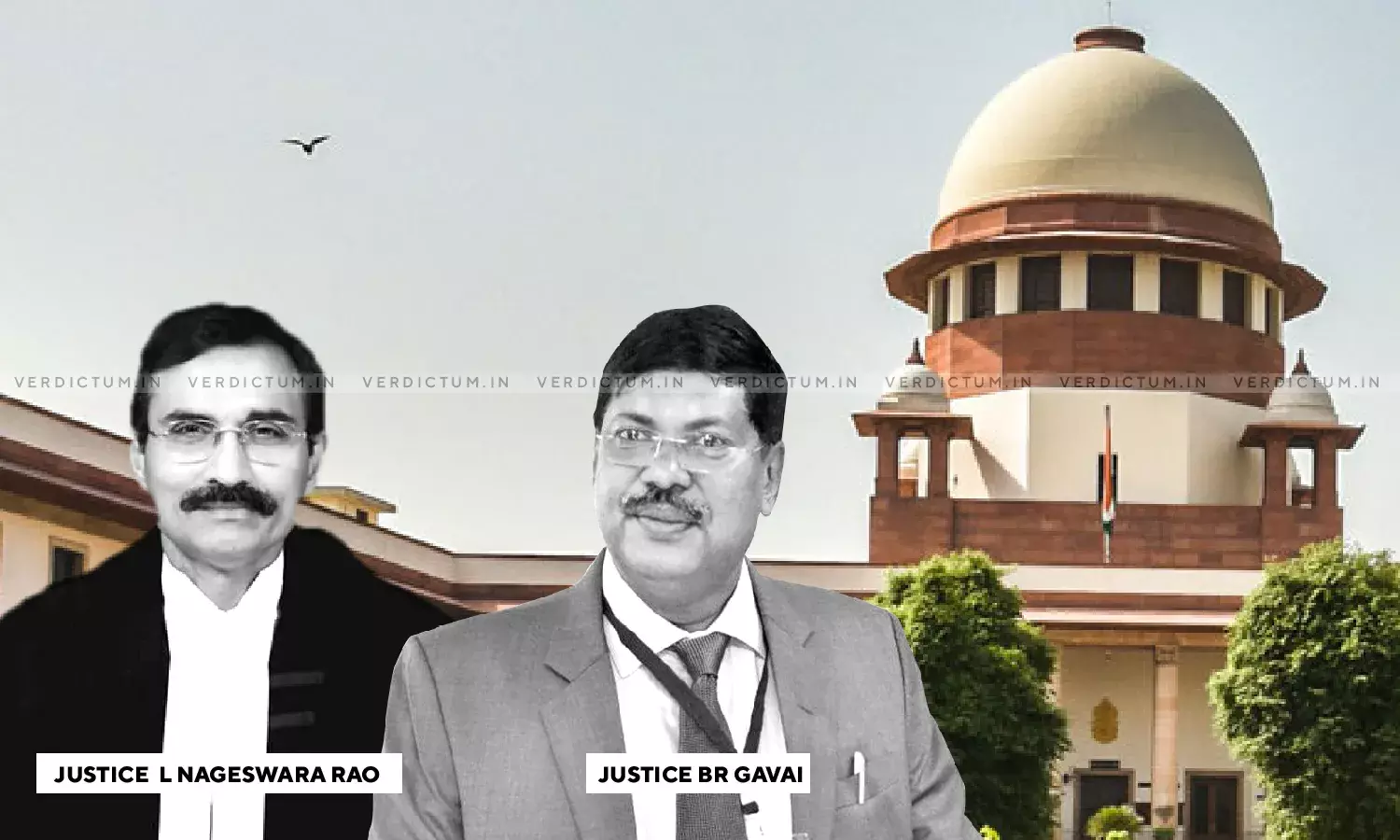Permission Granted For Subsequent Academic Year In Medical Courses Cannot Be Given Retrospective Effect – SC Reiterates
A two-judge Bench of Justice L Nageswara Rao and Justice BR Gavai while relying upon the precedent Ayurved Shastra Seva Mandal and Another v. Union of India and Others (2013) 16 SCC 696 has reiterated that permission granted for admission to medical courses for the subsequent academic year cannot be deemed permission for the previous year, thus cannot be given retrospective effect.
The Court also held that such permission cannot be for the previous year as the Ayurveda Medical College was not adhering to the eligibility criteria as specified in the Indian Medicine Central Council (Post Graduate Ayurveda Education) Regulations, 2016.
ASG Ms. Aishwarya Bhati appeared for the Appellant, ASG Ms. Madhvi Divan appeared for Union of India and Counsel Mr. Chinmay Deshpande appeared for Respondent No. 1 before the Apex Court.
In this case, the Bench was hearing a batch of appeals filed by the Central Council for Indian Medicine challenging the orders of the Karnataka High Court which had allowed the Writ Petitions of the Respondent and permitted the college to give admission to students for the academic year 2018-19 keeping in view the permission granted for 2019-2020.
Respondent No. 1 had applied to Respondent No. 3 and the Appellant for permission to start a post-Graduate course for the academic year 2014-15. The Appellant had granted permission to start five new Postgraduate Ayurvedic disciplines with five seats each in accordance with the Indian Medicine Central Council (PostGraduate Ayurveda Education) Regulations, 2012 which came to be superseded by the 2016 Regulations.
As per the 2016 Regulations, it was a requirement that an institution should possess a Central Research Lab and an Animal House. As per the 2016 Regulations, the Respondent collaborated with another college which permitted the Respondent for using the latter's Animal House. Prior to the grant of permission, the Union of India ordered for an inspection of facilities available with Respondent to be carried out by the Appellant and submit its inspection report. Certain deficiencies were pointed out due to which the Respondent was not granted the permission to admit Post Graduate students for the academic year 2018-19.
Aggrieved, the Respondent filed Writ Petition before the Single Judge of Karnataka High Court, however in the interregnum, the UOI granted permission to Respondent to admit students for the AY 2019-20.
The Single Judge placed reliance on various precedents of the Division Bench held that t if the permission was granted for the subsequent years, the benefit should enure in respect of the previous year also, allowed the writ petition. The same was upheld by the Division Bench of the High Court in an appeal.
Aggrieved, the Appellant approached the Supreme Court.
The Apex Court after referring to various provisions of the Indian Medicine Central Council Act, 1970 held that as per Section 13A (1) no person is entitled to establish a medical college except with the previous permission of the Central Government, likewise, no medical college can open a new or higher course of study or training, including a post-graduate course or training which would enable a student of such course or training to qualify himself for the award of any recognized medical qualification without the previous permission of the Central Government.
The Bench further held that there is a prohibition for the medical colleges to increase their admission capacity in any course of study or training, including a post-graduate course of study or training except with the previous permission of the Central Government.
The Court held that as per Section 13A (1) of the Act, the person or medical college shall submit a scheme to the Central Government under Section 13A (3) of the Act. The Central Government shall refer the scheme to the Central Council for its recommendation.
Further, the Bench opined –
"It could thus clearly be seen that Section 13A read with Sections 22 and 36(1)(j) of the said Act provides a complete scheme for the establishment of medical college, opening a new or higher course of study or training, including a postgraduate course of study or training, and also increasing the admission capacity. From the perusal of the scheme of the aforesaid provisions, it is clear that no person is entitled to establish a medical college except with the previous permission of the Central Government."
The Court held that the statutory scheme was thus clear that no medical college can open a new or higher course of study or training, including a post-graduate course, except with the previous permission of the Central Government. Prior to such permission being granted, the procedure as prescribed under Section 13A has to be followed.
The Court further noted that the impugned judgment of the Division Bench of the Karnataka High Court and also the other judgments of the Karnataka High Court which are relied on by the Division Bench, do not take into consideration the scheme of Section 13A of the said Act.
Placing reliance on Ayurved Shastra Seva Mandal (supra), the Bench held that the High Court has also erred in not correctly applying the law laid down by the Apex Court in this case.
In this context, the Court further held –
"We are at pains to say that though the judgment in the case of Ayurved Shastra Seva Mandal (supra) was specifically relied on by the appellant herein, the learned Single Judge and the Division Bench of the High Court of Karnataka have chosen to rely on the earlier judgments of the Division Bench of the same High Court rather than a judgment of this Court."
In the light of these observations, the Court allowed the appeals and set aside and quashed the impugned judgment of the Division Bench of the Karnataka High Court.
Click here to read/download the Judgment




